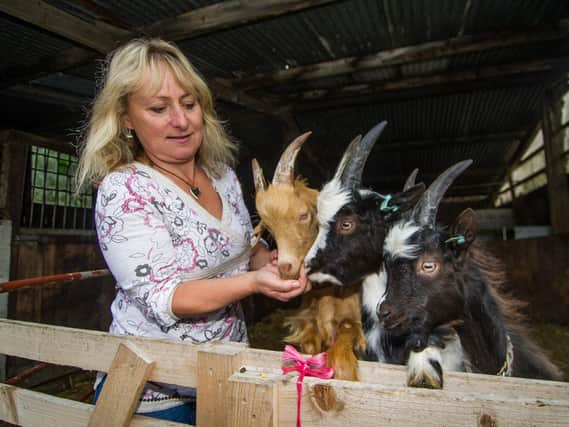The new 'public money for public goods' system will boost rare breed numbers


Speaking after the publication of its annual Watchlist which gives a barometer of rare breed numbers, the charity’s CEO Christopher Price said native breeds have a “sound platform” for reviving their numbers.
“Our latest Watchlist shows that the great efforts of rare breed keepers alongside our conservation programmes, over many years, are delivering real results,” he said.
Advertisement
Hide AdAdvertisement
Hide AdUnder the new Environment Land Management Scheme (ELMS) which will replace the EU Common Agricultural Policy subsidy payments, conservation of native livestock and equine breeds will be classed as a ‘public good’ qualifying for public funding.
Mr Price said it would allow native and heritage breeds to “grow their demonstrated value to the countryside” as we move to the new agricultural payment system.
“The Government’s recognition that native breed conservation is a public benefit opens the way for many more to keep rare breeds,” he said.
“In doing so they can be part of the important conservation effort for some of our country’s most striking and most treasured breeds, while also assuring themselves of a new, stable income stream.”
Advertisement
Hide AdAdvertisement
Hide AdLyn Arrowsmith of Raskelf Rare Breeds and Heritage Breeds in North Yorkshire agreed that getting a subsidy for native breeds would be a positive step towards encouraging people to keep them.
But she stressed that in order to keep an overview on how numbers of these rare and native breeds were doing it was important pedigrees and registration through breed societies and the RBST was maintained.
Mr Price said: “The Watchlist shows numbers of Bagot goats have doubled in a decade and continue to grow, Vaynol cattle numbers have increased significantly this year and Border Leicesters have had their best year since they joined the list.
“These rare breeds, and many others that RBST monitors and supports, are in a good position to swell their numbers as interest grows in keeping native breeds,” he said.
Advertisement
Hide AdAdvertisement
Hide AdMrs Arrowsmith, who also keeps Bagot goats, said raising awareness had really helped the breed’s numbers grow.
“We have some great volunteer support groups which are the heart of RBST,” she said.
“They are passionate about the breeds and go out around the country, taking the animals with them and talking to people who don’t know they are rare or why they should keep them. We explain about registration and people get engaged with them and the animals.”
However while there is plenty to be optimistic about, Mr Price said there were some breeds which remained at a real risk of dying out, highlighting Albion cattle, Large Black pigs and Hackney horses. English goats have also entered the Watchlist for the first time.
Advertisement
Hide AdAdvertisement
Hide AdMrs Arrowsmith said a surprise addition had also been Lonk sheep which are a good commercial breed. However with cross-breeding there were very few pure bred Lonk putting them on the danger list.
Editor’s note: first and foremost - and rarely have I written down these words with more sincerity - I hope this finds you well.
Almost certainly you are here because you value the quality and the integrity of the journalism produced by The Yorkshire Post’s journalists - almost all of which live alongside you in Yorkshire, spending the wages they earn with Yorkshire businesses - who last year took this title to the industry watchdog’s Most Trusted Newspaper in Britain accolade.
And that is why I must make an urgent request of you: as advertising revenue declines, your support becomes evermore crucial to the maintenance of the journalistic standards expected of The Yorkshire Post. If you can, safely, please buy a paper or take up a subscription. We want to continue to make you proud of Yorkshire’s National Newspaper but we are going to need your help.
Advertisement
Hide AdAdvertisement
Hide AdPostal subscription copies can be ordered by calling 0330 4030066 or by emailing [email protected]. Vouchers, to be exchanged at retail sales outlets - our newsagents need you, too - can be subscribed to by contacting subscriptions on 0330 1235950 or by visiting www.localsubsplus.co.uk where you should select The Yorkshire Post from the list of titles available.
If you want to help right now, download our tablet app from the App / Play Stores. Every contribution you make helps to provide this county with the best regional journalism in the country.
Sincerely. Thank you.
James Mitchinson
Editor